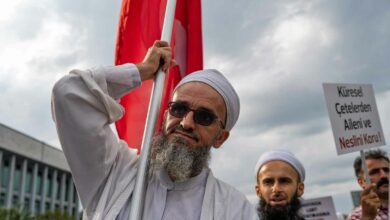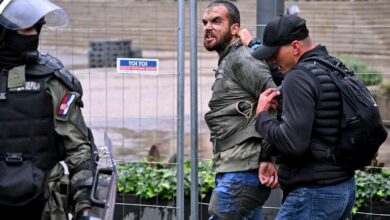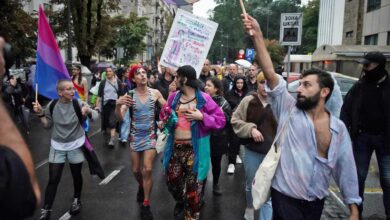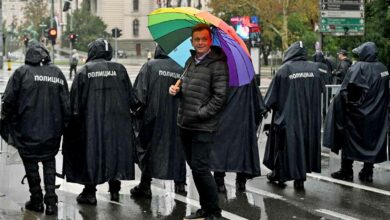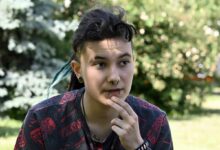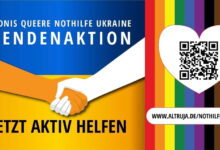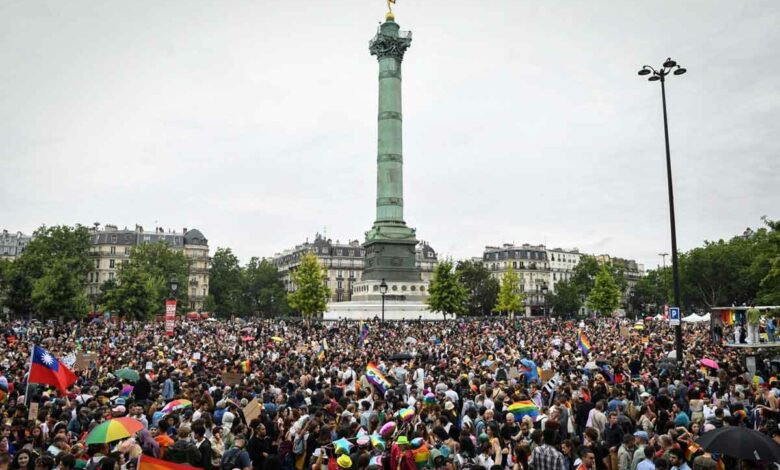
Russian LGBT artists find sanctuary in Paris
For many LGBT Russian artists, the invasion of Ukraine and the accompanying political crackdown was the final straw. Helped by a Paris charity, they have found a new home in France.
Paris (AFP) – For many LGBT Russian artists, the invasion of Ukraine and the accompanying political crackdown was the final straw. Helped by a Paris charity, they have found a new home in France.

Alexei, a 23-year-old composer, used to believe that he could ride out President Vladimir Putin’s regime, but watching his friends being arrested or fleeing the country in the wake of the war, he felt he had been naive.
“The war caused me pain, shame and guilt — you tell yourself that you haven’t done enough against this regime,” Alexei, who did not want to give his full name, told AFP.
He knew he had made the right decision to leave when he heard that police had visited the St Petersburg music school where he was a teacher, accusing it of promoting “LGBT propaganda” over a photo of Alexei kissing his boyfriend on its Facebook page.
He came to Paris with the help of a support group, the Agency of Artists in Exile, and was joined by his boyfriend soon after.

The agency set up a hotline for artists from both Ukraine and Russia following the invasion and has helped around 100 artists from the two countries, providing them with studio space, as well as help with visas, language training and psychological support.
As he plays Rachmaninov — a Russian composer — in one of the agency’s practice rooms, Alexei says he is relieved but daunted.
“Here, I have some freedom,” he said. “I just don’t know what to do with that freedom.”
– Ukrainians, Russians together –

Others have found the transition difficult, too.
Having lived in constant fear of being beaten up back home, Angelu, a non-binary fashion designer, said they were too traumatised to leave their new apartment in Paris when they arrived.
It was, perhaps fittingly, a Ukrainian neighbour who approached them and helped them gain confidence to explore the city.
That relationship is mirrored around the agency’s workshops, where Russians and Ukrainians work closely together, and recently held a joint exhibition.
“The war stops at the doors of the workshop,” said Judith Depaule, who co-founded the agency in 2016.
It is a strange mix, she said, since the Russians have lost all sense of patriotism and the Ukrainians are in the midst of patriotic fervour.
Gena Marvin, 23, arrived in late April.

Back in Moscow, the transgender artist was working on “trash art”, using discarded items to create costumes and sculptures, as well as performances such as wrapping her body in tape that evoke “a country where there is no freedom and where the freedom of my body was not permitted”.
Still listed as male on her official documents, Marvin was terrified of being called up to fight in Ukraine, and decided to leave after being arrested at an anti-war demonstration.
“I don’t feel the same fear in France, but I am still on edge because once you’ve been accustomed to fear, you never totally lose it,” she said.
She has thrown herself into her new life. Over the weekend, she could be seen wrapped in rainbow-coloured tape for the Pride March in Paris.
Alexei, who is working on the soundtrack for a film about Ukraine, still holds out hope of one day being able to go home.
“It is not Russia that is homophobic — only the Russian state,” he said.
par Alain Jocard
ram/er/jv
© Agence France-Presse






